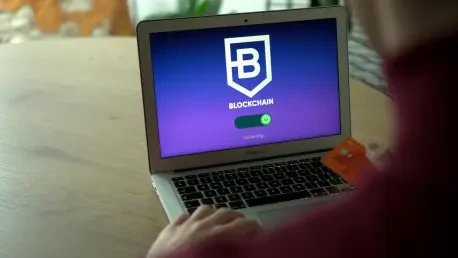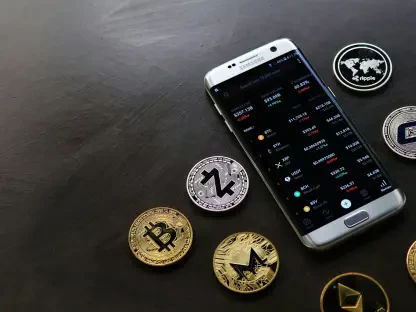In an era where digital currencies are increasingly intersecting with everyday life, a new player backed by high-profile figures has entered the scene with a bold vision to transform financial transactions through innovative means. World Liberty Financial, a cryptocurrency venture supported by the Trump family, has captured attention with its ambitious plans to make crypto assets as practical as traditional money. With the announcement of a pioneering debit card designed to bridge digital holdings with daily spending, this company is positioning itself at the forefront of decentralized finance (DeFi). This initiative, alongside broader strategies like asset tokenization and stablecoin development, raises a critical question: can such innovations truly reshape how people interact with money, or are they merely a speculative gamble in a volatile market? As skepticism lingers due to political associations and market challenges, the journey of this venture offers a compelling glimpse into the evolving landscape of financial technology.
Innovations Driving Crypto into Mainstream Use
Bridging Digital and Physical Transactions
World Liberty Financial is making headlines with its upcoming debit card, a tool designed to seamlessly integrate cryptocurrency into routine purchases. Announced by CEO Zach Witkoff at a prominent industry conference, the card is slated for rollout between late 2025 and early 2026, following a pilot program in the coming months. This product aims to allow users to spend their digital assets directly, eliminating the need to convert crypto into fiat currency for everyday transactions. Compatibility with widely used platforms like Apple Pay further enhances its appeal, linking the card to the company’s app and its proprietary USD1 stablecoin. Such integration signals a significant step toward normalizing crypto as a practical medium of exchange, moving beyond its reputation as a speculative investment. If successful, this could set a precedent for how digital currencies are perceived and utilized in daily financial activities, potentially influencing broader adoption across diverse demographics and markets.
Expanding Horizons with Asset Tokenization
Beyond the debit card, World Liberty Financial is exploring innovative ways to expand the utility of blockchain technology through asset tokenization. CEO Zach Witkoff has hinted at plans to tokenize real-world assets such as real estate and oil and gas, a move that could redefine investment accessibility. By converting physical assets into digital tokens, the company seeks to democratize access to high-value markets traditionally reserved for institutional players. This strategy aligns with the broader DeFi movement, which prioritizes cutting out intermediaries to create more inclusive financial systems. While still in early discussions, this vision reflects a forward-thinking approach to leveraging cryptocurrency for tangible economic impact. However, the complexity of regulatory frameworks and the need for robust technological infrastructure pose substantial hurdles. The success of such initiatives will likely depend on the company’s ability to build trust and ensure transparency in an industry often scrutinized for opacity and risk.
Challenges and Market Perceptions
Navigating Volatility and Investor Confidence
Despite its ambitious plans, World Liberty Financial faces significant challenges in establishing credibility within the volatile cryptocurrency market. The company’s digital token, $WLFI, experienced a rocky launch with a sharp 31% drop in value during its initial trading week, leading to considerable losses for early investors. Although a slight recovery has been observed, with the token trading 0.5% higher at $0.2011, this fluctuation highlights the inherent risks of digital assets. Such instability can erode investor confidence, making it difficult for the company to attract sustained support. Moreover, the broader crypto market’s unpredictability adds another layer of complexity to the venture’s mission of mainstreaming digital currencies. To overcome these obstacles, demonstrating consistent value and reliability in offerings like the USD1 stablecoin—touted as highly trustworthy—will be crucial. Only through strategic transparency can the company hope to shift perceptions and build a stable user base.
Overcoming Skepticism and Reputational Hurdles
Another formidable barrier for World Liberty Financial lies in the skepticism tied to its high-profile backing by the Trump family. Critics have raised concerns about potential benefits from relaxed crypto regulations during past political administrations, casting doubt on the venture’s motives. Addressing these criticisms, co-founder Donald Trump Jr. has emphasized that the organization operates without political agendas. CEO Zach Witkoff has also acknowledged past derision, recalling how detractors once labeled the project as a mere novelty or speculative token. This uphill battle for legitimacy is compounded by the competitive nature of the DeFi sector, where trust is hard-earned. Public perception remains a double-edged sword—while the association with a prominent name draws attention, it also invites scrutiny. Moving forward, the company must prioritize clear communication and proven results to dispel doubts and carve out a reputable space in an industry often wary of politically charged ventures.
Reflecting on a Bold Financial Experiment
Looking back, World Liberty Financial embarked on a daring mission to integrate cryptocurrency into the fabric of daily finance, with its debit card initiative standing as a flagship effort. The journey revealed both the promise of innovation and the weight of market and reputational challenges. As the company pushed boundaries with plans for asset tokenization and stablecoin reliability, it grappled with token volatility and public skepticism tied to its prominent backers. Moving forward, the focus should shift to actionable steps like ensuring the transparency of offerings and delivering on the promised utility of the debit card. Strengthening partnerships and engaging with regulatory bodies could also pave the way for smoother integration into mainstream systems. Ultimately, the legacy of this venture may hinge on its ability to transform initial curiosity into lasting trust, offering a blueprint for how DeFi can evolve beyond speculation to become a cornerstone of modern financial interactions.









